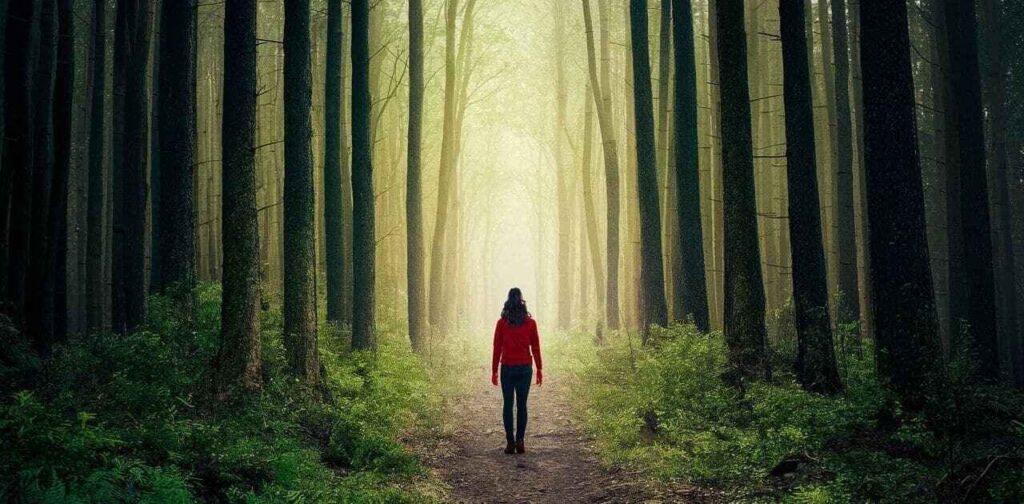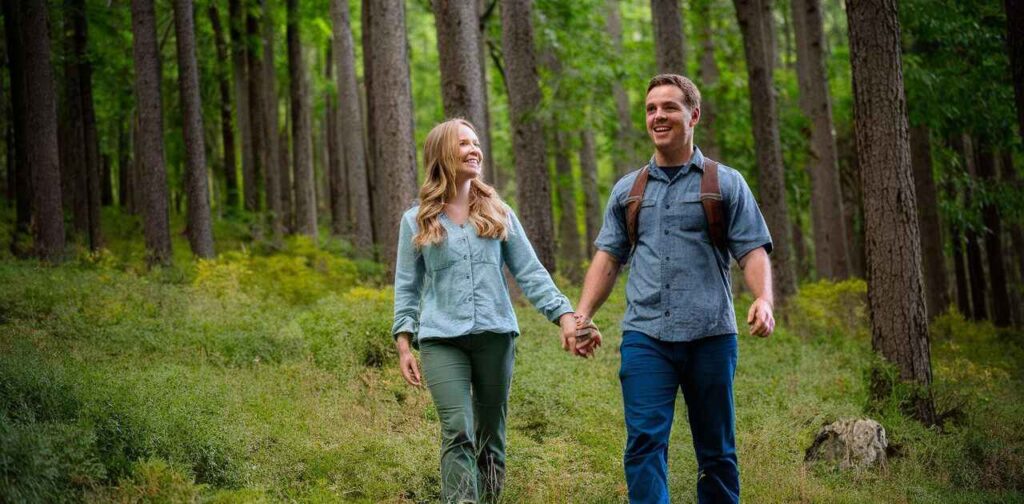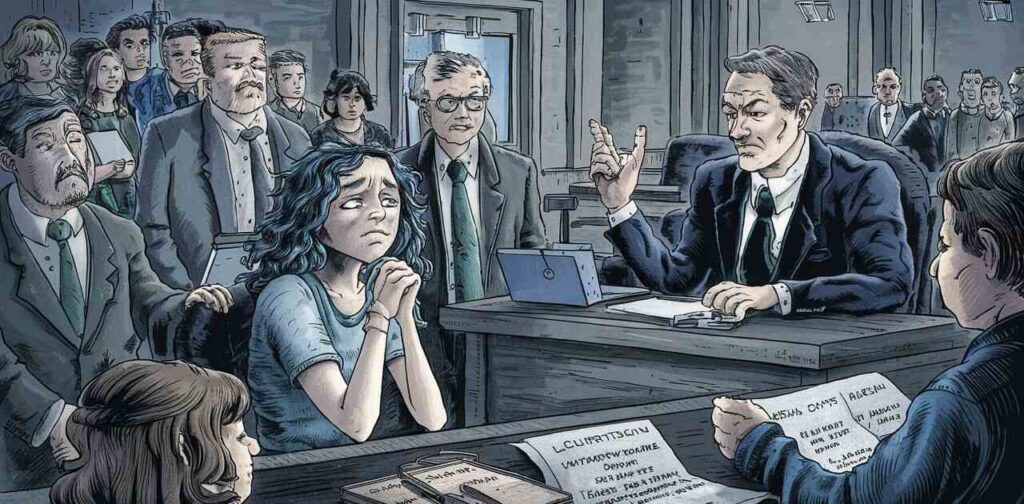The recent lawsuit filed against BlueFire Wilderness, a wilderness therapy program for troubled teens, has sent shockwaves through the nation. Allegations of neglect, abuse, and negligence within the program have raised critical concerns about the safety and well-being of its participants.
This comprehensive guide delves into the heart of the BlueFire Wilderness lawsuit, shedding light on the controversies, legal proceedings, and the profound impact it could have on the wilderness therapy industry.
What is BlueFire Wilderness Therapy?
BlueFire Wilderness is a wilderness therapy program designed to assist troubled adolescents in overcoming personal challenges by immersing them in a natural setting. The program combines clinical expertise with outdoor experiences, aiming to foster long-lasting, positive changes in its participants. While some have praised BlueFire’s approach, the program has also faced skepticism and criticism over the years, setting the stage for the current legal battle.
The Concept of Wilderness Therapy

Wilderness therapy is an alternative form of treatment that leverages the restorative power of nature to address various mental health and behavioral issues. Proponents believe that removing individuals from their familiar environments and immersing them in the great outdoors can facilitate self-reflection, personal growth, and positive transformations. This approach has gained traction as a complementary therapy for conditions like substance abuse, anxiety, depression, and more.
The Allegations Behind the BlueFire Wilderness Lawsuit
At the core of the BlueFire Wilderness lawsuit are serious allegations made by plaintiffs against the program. These accusations encompass neglect, abuse, and negligence, raising grave concerns about the treatment and safety of the adolescents enrolled in the program. While it’s crucial to emphasize that these are allegations that require thorough examination through the legal process, the nature of the claims is deeply troubling.
One plaintiff alleges that their child endured extreme conditions, including a lack of basic hygiene facilities. According to the claim, the participant was forced to go for weeks without access to a shower, even after soiling themselves. Other allegations include reports of forced labor, physical and sexual abuse, and excessive exercise routines while malnourished.
These accounts stand in stark contrast to BlueFire’s promotional materials, which paint a picture of a nurturing and supportive environment designed to facilitate personal growth and healing.
For further context on lawsuits involving allegations and legal battles, read The Prodigy Promos Lawsuit: Allegations, Parties, and Legal Battle Explained.
Primary Concern – Client Safety

At the heart of the BlueFire Wilderness lawsuit lies a fundamental concern: the safety and well-being of the adolescent participants. Any accusations of mistreatment within a therapeutic environment are inherently alarming and warrant rigorous investigation. The allegations suggest that BlueFire may have failed to uphold the duty of care owed to its vulnerable clients, potentially exposing them to harm and trauma.
Legal Proceedings for the BlueFire Lawsuit: What to Expect
The BlueFire Wilderness lawsuit is likely to be a protracted legal battle, with both sides presenting their evidence and arguments before the court. As with any legal proceeding, a thorough examination of the facts and a fair assessment of the allegations will be paramount.
| Legal Proceeding Stage | Description |
| Evidence Gathering | Plaintiffs and BlueFire will collect and present relevant evidence, including testimonies, records, and expert opinions, to support their respective positions. |
| Pre-Trial Motions | Both parties may file various motions, such as motions to dismiss or motions for summary judgment, which could significantly impact the case’s trajectory. |
| Trial | If the case proceeds to trial, both sides will present their cases before a judge and/or jury, who will ultimately determine the validity of the allegations and render a verdict. |
| Appeals | Depending on the outcome, either party may choose to appeal the decision, potentially prolonging the legal battle further. |
This process could span several months or even years, leaving many eagerly awaiting a resolution that addresses the concerns raised and upholds justice for all parties involved.
Community Response to the BlueFire Wilderness Lawsuit
The BlueFire Wilderness lawsuit has ignited a passionate debate within the community, with supporters and critics voicing their perspectives on the matter. Supporters of the program highlight the perceived positive impacts of wilderness therapy and the potential benefits it can offer to troubled youth.
“BlueFire has helped countless teens turn their lives around,“ says Sarah, a parent whose child attended the program. “The wilderness setting and the dedicated staff provided the guidance and support my son needed to overcome his challenges.“
On the other hand, critics argue that the allegations of mistreatment and neglect, if proven true, are unacceptable and call for increased transparency, accountability, and reforms within the industry.
“No child should ever be subjected to abuse or neglect, especially in a setting that claims to be therapeutic,“ says David, a mental health advocate. “These allegations demand a thorough investigation and, if substantiated, swift action to protect vulnerable participants.“
Impacts of the Lawsuit

The BlueFire Wilderness lawsuit has far-reaching implications that extend beyond the program itself. Firstly, the legal proceedings could potentially impact BlueFire’s operations, resulting in changes to their policies, practices, or even temporary suspension of services until the matter is resolved.
Moreover, if the allegations are proven true, it could trigger a ripple effect throughout the wilderness therapy industry, leading to increased scrutiny, stricter regulations, and a re-evaluation of best practices. This could ultimately benefit participants by enhancing safety standards and ensuring a higher level of accountability within these programs.
Conversely, if the allegations are found to be unsubstantiated, it could bolster the reputation of wilderness therapy as a viable treatment option and reinforce the importance of due process in addressing such claims.
FAQ’s About the BlueFire Wilderness Lawsuit
What is the BlueFire Wilderness lawsuit about?
The lawsuit alleges neglect, abuse, and negligence within BlueFire Wilderness, a wilderness therapy program for troubled adolescents.
Are the allegations against BlueFire proven facts?
No, the allegations are not proven facts at this stage. They are legal claims made by the plaintiffs that require thorough examination through the legal process.
What is the primary concern surrounding the lawsuit?
The central concern is the safety and well-being of the adolescents enrolled in the BlueFire Wilderness program.
How long might the legal proceedings take?
Legal battles can be protracted, and the timeline for this lawsuit is uncertain. It could take several months or even years for the court to reach a verdict.
Where can I find updates on the BlueFire Wilderness lawsuit?
You can stay informed about the latest developments through reputable news sources, official court statements, and reliable legal news websites.
What happens in wilderness therapy?
Wilderness therapy involves immersing individuals, often troubled teens, in outdoor settings and engaging in activities like hiking, camping, and group therapy sessions to promote personal growth and address behavioral or emotional issues.
What are the risks of wilderness therapy?
Potential risks of wilderness therapy include physical injuries, exposure to extreme weather conditions, lack of proper medical care, emotional trauma due to harsh tactics, and allegations of abuse or neglect in some programs.
Why do people go to wilderness therapy?
People, particularly parents of troubled teens, seek wilderness therapy as an alternative treatment approach to address issues like substance abuse, behavioral problems, mental health concerns, or a need for personal development in a natural, outdoor setting.
What is the wilderness psychology?
Wilderness psychology is the study of the psychological and emotional impacts of being immersed in natural environments, often used as a therapeutic approach to promote personal growth, self-reflection, and overall well-being.
Sounds like you would send your troubled teen to a luxury resort, but are the kids being abused, not fed or given water properly, and only allowed to shower once per week, which seems horrible and inhumane, especially if you have a teenager yourself?
The reference to “kids showing ‘once per week‘” is unclear, but any allegations of inhumane treatment or neglect towards participants, especially minors, in a therapeutic program are deeply troubling and warrant immediate attention from authorities and the broader community.
Since BlueFire Wilderness seems to still be operating despite the allegations, what actions can concerned locals take to help put a stop to this alleged mistreatment and hold them accountable?
If BlueFire Wilderness is still operating amid serious allegations, concerned individuals can voice their concerns to local authorities, file complaints, or support advocacy efforts aimed at investigating the program’s practices and, if necessary, pursue legal or regulatory actions to ensure the safety of participants.
Conclusion
The BlueFire Wilderness lawsuit has brought to light serious concerns about the treatment and safety of vulnerable participants in wilderness therapy programs. While the legal proceedings will ultimately determine the validity of the allegations, this case has sparked a crucial dialogue about the need for transparency, accountability, and ethical standards within the industry.
As the wilderness therapy approach gains popularity, it is imperative to strike a balance between leveraging the restorative power of nature and ensuring the well-being of those seeking healing and personal growth. The BlueFire Wilderness lawsuit serves as a powerful reminder that the protection and safety of individuals, especially those in vulnerable situations, must be the top priority for any therapeutic program.

Alexander Quinn is the author behind Filterabout.com. Known for expertise in diverse topics, Quinn’s content on the website reflects a versatile knowledge base catering to various interests.



![Jynxzi Age, Net Worth, Career[2024]](https://filterabout.com/wp-content/uploads/2024/05/Who-Is-Shanin-Blake-Age-Wiki-Parents-Dating-Net-Worth-300x148.jpg)
![Jynxzi Age, Net Worth, Career[2024]](https://filterabout.com/wp-content/uploads/2024/05/Jynxzi-Age-Net-Worth-Career2024-300x148.jpg)


![Kutty Surumi Net Worth, Bio, Age[2024]](https://filterabout.com/wp-content/uploads/2024/05/Kutty-Surumi-Net-Worth-Bio-Age2024-300x148.jpg)



![Jynxzi Age, Net Worth, Career[2024]](https://filterabout.com/wp-content/uploads/2024/05/Who-Is-Shanin-Blake-Age-Wiki-Parents-Dating-Net-Worth-150x150.jpg)